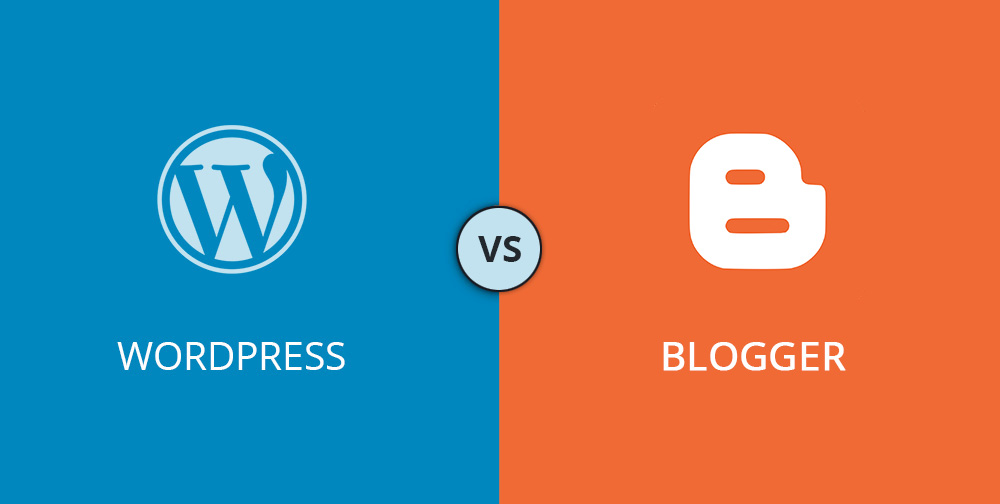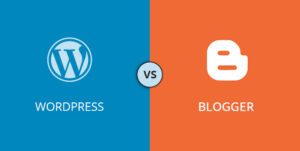Customization Options: BlogSpot vs WordPress
When it comes to blogging platforms, two of the most popular options are BlogSpot and WordPress. Both platforms offer a range of customization options, allowing bloggers to create a unique and personalized website. However, there are some key differences between the two that bloggers should consider before making a decision.
One of the main differences between BlogSpot and WordPress is the level of customization available. BlogSpot, also known as Blogger, is a platform owned by Google. It offers a limited range of templates and design options, making it easier for beginners to get started. However, this limited customization can be a drawback for bloggers who want more control over the appearance of their website.
On the other hand, WordPress is an open-source platform that offers a wide range of customization options. With thousands of themes and plugins available, bloggers can easily create a website that reflects their unique style and brand. From changing the layout and color scheme to adding custom features and functionality, WordPress provides bloggers with endless possibilities for customization.
Another important factor to consider is the ease of use. BlogSpot is known for its user-friendly interface, making it a great choice for beginners. The platform offers a simple and intuitive dashboard, making it easy to write and publish blog posts. Additionally, BlogSpot takes care of all the technical aspects, such as hosting and security, so bloggers can focus on creating content.
WordPress, on the other hand, has a steeper learning curve. While the platform offers more customization options, it also requires more technical knowledge. Bloggers using WordPress will need to handle tasks such as choosing a hosting provider, installing themes and plugins, and managing security updates. However, for bloggers who are willing to invest the time and effort, WordPress offers a more powerful and flexible platform.
When it comes to search engine optimization (SEO), both BlogSpot and WordPress offer similar features. Both platforms allow bloggers to optimize their website for search engines by adding meta tags, optimizing URLs, and creating XML sitemaps. However, WordPress has a slight advantage in terms of SEO plugins. With plugins like Yoast SEO, bloggers can easily optimize their content and improve their search engine rankings.
In terms of community and support, WordPress has a clear advantage. With millions of users worldwide, WordPress has a large and active community. Bloggers can find support and advice through forums, tutorials, and online communities. Additionally, WordPress has a vast library of documentation and resources, making it easier for bloggers to troubleshoot issues and learn new skills.
On the other hand, BlogSpot has a smaller community and fewer resources available. While bloggers can still find support through forums and online communities, the level of support may not be as extensive as WordPress. This can be a drawback for bloggers who rely on community support and guidance.
In conclusion, both BlogSpot and WordPress offer customization options for bloggers, but there are some key differences to consider. BlogSpot is a user-friendly platform with limited customization options, making it a great choice for beginners. On the other hand, WordPress offers a wide range of customization options but requires more technical knowledge. Additionally, WordPress has a larger community and more resources available for support. Ultimately, the choice between BlogSpot and WordPress depends on the blogger’s needs and preferences.
SEO Capabilities: BlogSpot vs WordPress
When it comes to blogging platforms, two of the most popular options are BlogSpot and WordPress. Both platforms offer a range of features and customization options, but one area where they differ is in their SEO capabilities. Search Engine Optimization (SEO) is crucial for bloggers who want to increase their visibility and attract more organic traffic to their websites. In this article, we will explore the differences between BlogSpot and WordPress in terms of their SEO capabilities.
WordPress is widely regarded as the superior platform when it comes to SEO. It offers a range of built-in SEO features and plugins that can help bloggers optimize their content for search engines. One of the key advantages of WordPress is its ability to generate SEO-friendly URLs. By default, WordPress creates URLs that include the post title, making it easier for search engines to understand the content of the page. Additionally, WordPress allows users to customize their URLs further by adding keywords or removing unnecessary elements.
Another SEO advantage of WordPress is its ability to generate XML sitemaps. Sitemaps are essential for search engines to crawl and index a website effectively. WordPress automatically generates XML sitemaps for all the content on a website, making it easier for search engines to discover and index new pages. Additionally, WordPress offers a range of plugins, such as Yoast SEO and All in One SEO Pack, that provide advanced SEO features like meta tags, keyword optimization, and social media integration.
On the other hand, BlogSpot, also known as Blogger, has limited SEO capabilities compared to WordPress. While BlogSpot does offer some basic SEO features, such as customizable meta tags and descriptions, it lacks the advanced SEO options provided by WordPress. BlogSpot’s URL structure is not as SEO-friendly as WordPress, as it includes unnecessary elements like date and post ID in the URL. This can make it harder for search engines to understand the content and rank it appropriately.
Furthermore, BlogSpot does not generate XML sitemaps automatically. Bloggers using BlogSpot have to rely on third-party tools or manually create and submit their sitemaps to search engines. This can be time-consuming and may result in incomplete or outdated sitemaps, which can negatively impact a website’s visibility in search engine results.
In terms of SEO plugins, WordPress clearly has the upper hand. While BlogSpot does offer some basic SEO settings, it does not have a wide range of plugins specifically designed for SEO optimization. WordPress, on the other hand, has a vast library of SEO plugins that can enhance a website’s visibility and performance in search engine rankings.
In conclusion, when it comes to SEO capabilities, WordPress outshines BlogSpot. WordPress offers a range of built-in SEO features, customizable URLs, automatic XML sitemap generation, and a wide selection of SEO plugins. BlogSpot, on the other hand, has limited SEO options, less SEO-friendly URLs, and lacks automatic XML sitemap generation. If SEO is a priority for your blog, WordPress is undoubtedly the better choice.
Monetization Potential: BlogSpot vs WordPress
When it comes to blogging, one of the key considerations for many bloggers is the potential for monetization. After all, who wouldn’t want to turn their passion into a profitable venture? In this article, we will explore the monetization potential of two popular blogging platforms: BlogSpot and WordPress.
Let’s start with BlogSpot, also known as Blogger. BlogSpot is a free blogging platform owned by Google. It offers a user-friendly interface and is a popular choice for beginners due to its simplicity. However, when it comes to monetization, BlogSpot has some limitations.
One of the main drawbacks of BlogSpot is the lack of control over your blog’s design and functionality. While there are some customization options available, they are limited compared to WordPress. This can be a disadvantage when it comes to monetization because a well-designed and professional-looking blog is more likely to attract advertisers and sponsors.
Another limitation of BlogSpot is the limited options for advertising. Bloggers on BlogSpot can only use Google AdSense for monetization. While AdSense can be a reliable source of income, it may not be sufficient for bloggers who want to explore other advertising options or work directly with brands.
On the other hand, WordPress offers more flexibility and control over your blog’s design and functionality. With thousands of themes and plugins available, you can create a unique and professional-looking blog that stands out from the crowd. This can significantly increase your chances of attracting advertisers and sponsors.
WordPress also offers a wider range of monetization options. In addition to Google AdSense, WordPress users can explore other advertising networks, such as Media.net or BuySellAds. They can also work directly with brands for sponsored posts, product reviews, or affiliate marketing. This versatility gives bloggers more opportunities to monetize their content and diversify their income streams.
Furthermore, WordPress allows bloggers to sell their own products or services directly from their blog. Whether it’s an e-book, an online course, or a physical product, WordPress provides the necessary tools and plugins to set up an e-commerce store. This can be a lucrative option for bloggers who have a loyal audience and want to leverage their expertise to generate income.
In terms of search engine optimization (SEO), WordPress also has an edge over BlogSpot. WordPress is known for its SEO-friendly features, such as customizable permalinks, meta tags, and XML sitemaps. These features can help improve your blog’s visibility in search engine results, attracting more organic traffic and potential monetization opportunities.
In conclusion, while BlogSpot may be a suitable choice for beginners due to its simplicity, WordPress offers greater monetization potential. With its customization options, wider range of advertising networks, and e-commerce capabilities, WordPress provides bloggers with more opportunities to turn their passion into a profitable venture. Additionally, its SEO-friendly features can help increase visibility and attract more monetization opportunities. So, if you’re serious about monetizing your blog, WordPress is the platform to consider.







